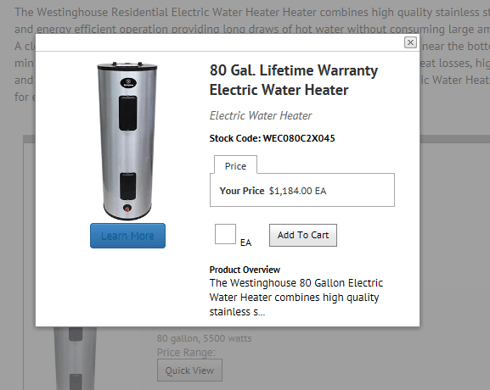The ACEEE strongly recommends a condensing furnace (AFUE 90% or higher), unless you live in a warm climate (in this case, you may want to consider retrofitting your system with a heat pump instead).
Did you know that all of Westinghouse Water Heating's high efficiency units are condensing? Westinghouse water heaters are leading products in the heating and hot water industry. With state of the art technologies and a focus on high efficiency water heating, Westinghouse water heaters pave the way in the heating industry and provide some of the best water heaters. One of the key components to Westinghouse water heater's success is the use of new technology along with its aesthetically pleasing stainless steel tanks. We are constantly developing new ways to improve the technology of our products and our process. Our goal is to raise heating efficiency while keeping water heater costs low. Head to our site to check out our products, or purchase one today!


